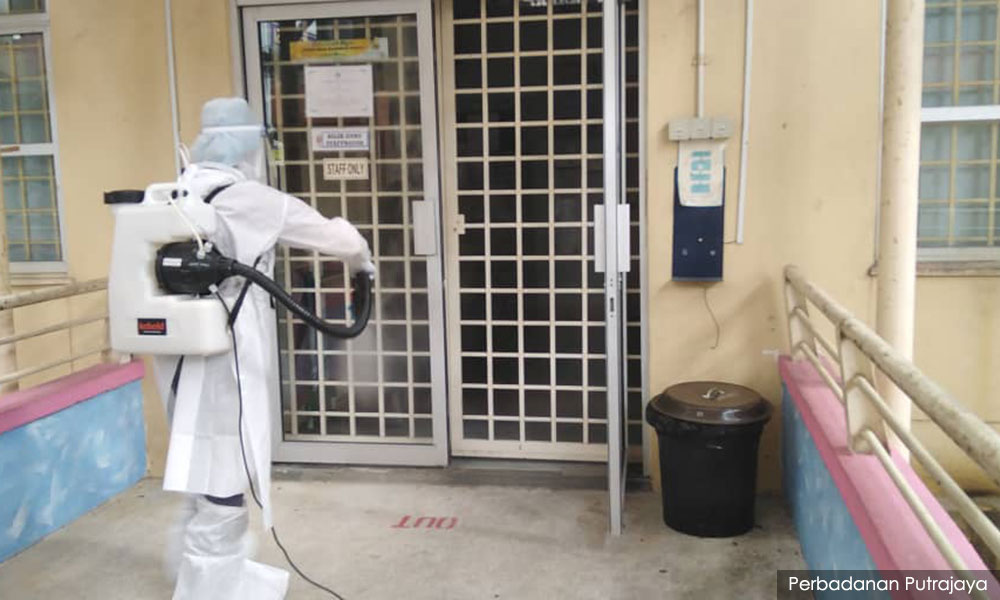To put it civilly, what has been happening over the past week can be described as a group of people who can’t even organise an aspirin in a pharmacy; to put it loosely, it could be said that they cannot organise a beer in a brewery.
No disrespect to pharmacists and brewmasters for comparing them to the people behind all the bungles in enforcing the latest round of the movement control order (MCO 3.0) under the Prevention and Control of Infectious Diseases Act 1988 ("the Act") to prevent and curb the spread of Covid-19.
Despite this being the third in 15 months, it appears that the authorities have not learnt from past boo-boos, mistakes and erroneous procedures. This leads to the question of whether the issues go through any thought process before announcements are made.
Without fail and almost on a daily basis, Malaysians are faced with new procedures and regulations, sometimes reversed overnight.
Why does the government keep flip-flopping over issues that benefit the people and stand steadfastly by the ones that bring no benefits and in the process literally pour good money down the drain?
On May 27, the National Covid-19 Immunisation Programme coordinating minister Khairy Jamaluddin announced that members of the public can soon choose the type of vaccine they prefer, Three days later, there was an about-turn.
“We thought about that initially but now the concern is to increase and ramp up the vaccination number. So we will just give whatever (vaccines) we have. If we give them an option, maybe that will slow things down,” he told the media on May 30.
The question to ask is: Was the first decision taken at the spur of the moment without consultation and weren’t all these factors considered before the announcement was made?

Elsewhere, Housing and Local Government Minister Zuraida Kamaruddin was adamant and carried out a large-scale disinfection exercise over two days at 284 locations nationwide.
Despite being experts saying that such an exercise will not work, no one listened. Universiti Putra Malaysia public health expert associate professor Dr Malina Osman told Astro Awani that sanitisation only needs to be carried out based on the risk assessment of an area.
“In terms of public health, we don't need to perform routine public sanitisation. Periodic sanitisation of areas without any reported cases is also not recommended because the practice is not backed by scientific evidence,” she said.
Infectious disease expert Dr Adeeba Kamarulzaman also poured cold water on sanitisation exercises which she said were a waste of limited resources that could be better channelled elsewhere.
Truth deficiency syndrome
Has politics and the need to spend allocations superseded science and necessity? Yet, now the government appeals for funds to fight the pandemic.
Malaysians are known for their generosity but surely they have a right to ask why such money-wasting exercises have taken place.
Media practitioners, too, have not been spared the effects of the flip-flops. The media was already listed as an essential service and firms in the sector already secured their approval letters from the Communications and Multimedia Ministry.
But last night, media companies were notified by ministry officials that their companies would have to re-register under the International Trade and Industry Ministry (Miti) after many already completed their applications and received approval letters from the communications ministry.
Now, media companies are not in the manufacturing business. They collate, process and publish news. So what’s the rationale? Why does the government, especially Miti, take on additional paperwork when they are finding it difficult to even process applications from factories?
Also, the ongoing spat between the Malaysian Medical Association and the government paints a picture of a totally disorganised vaccination scheme.
The truth deficiency syndrome will soon become more deadly than the pandemic itself in the people not believing anything that comes from the government.
Only when such doubts are cleared and the citizens given an accurate picture will herd immunity succeed. - Mkini
R NADESWARAN says the changing of policies and procedures should cease and hopefully, it will be translated into confidence in the system. Comments: citizen.nades22@gmail.com
The views expressed here are those of the author/contributor and do not necessarily represent the views of MMKtT.




No comments:
Post a Comment
Note: Only a member of this blog may post a comment.